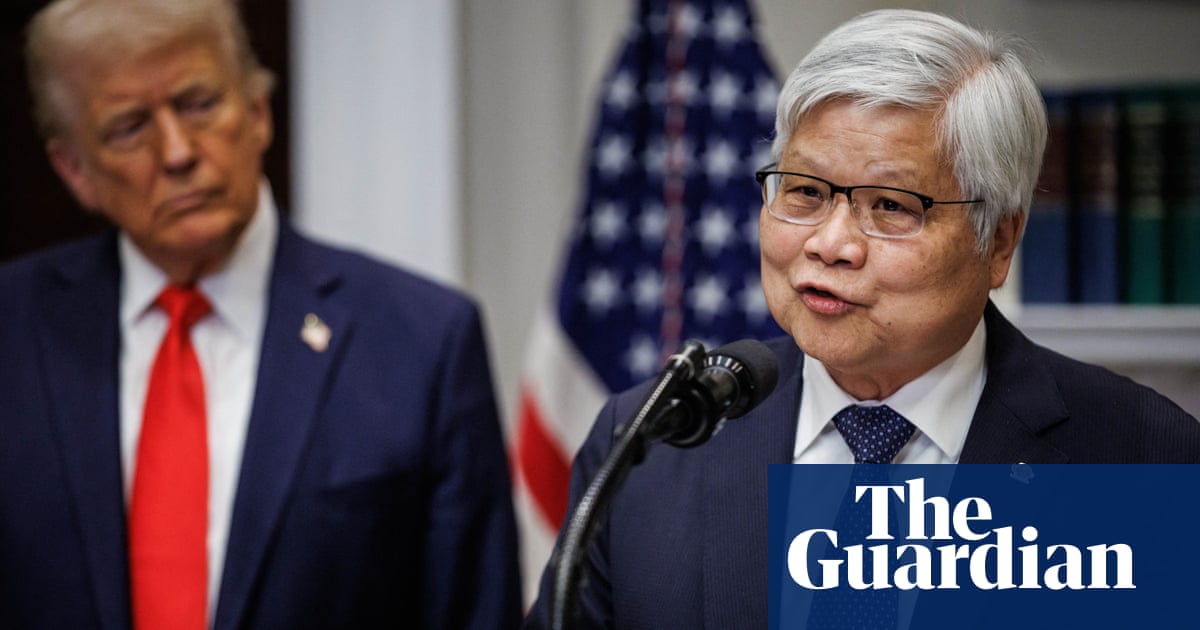TSMC’s chief executive, CC Wei, stood alongside Donald Trump in the White House on Monday, announcing what he described as the largest foreign direct investment in US history. The company, which produces most of the world’s advanced semiconductors, will increase its existing $65 billion US presence by an additional $100 billion. For TSMC, the deal avoids potential massive tariffs Trump had proposed for the global chip industry. For the US, it promises tens of thousands of construction jobs and the development of critical technology domestically, away from the risk of China gaining control if it were to annex Taiwan.
The agreement is not final. Under Taiwanese law, TSMC must secure government approval for foreign investments exceeding $1.5 billion—a fraction of the deal’s scale. President Lai Ching-te stated that the government would evaluate the deal with “national interests” in mind. As of Wednesday, the economic affairs ministry confirmed to the Guardian that no application had been submitted yet.
Concerns have been raised over the deal. Opposition KMT members argue it could weaken Taiwan’s security. KMT legislator Ko Ju-Chun warned, “The more TSMC produces in the US, the lower Taiwan’s geopolitical importance will be, and the less incentive the US will have to assist Taiwan in the future.” Taiwan’s semiconductor industry, led by TSMC, contributes up to 15% of the nation’s GDP and is often regarded as Taiwan’s “silicon shield,” a strategic asset ensuring global support to keep the crucial chip supply out of Chinese hands. With Donald Trump signaling reduced personal interest in defending Taiwan, this leverage has become increasingly vital.
President Lai’s office assured that TSMC would retain its most advanced manufacturing processes in Taiwan, though this statement seemed inconsistent with remarks made by Wei and Trump. Wei reportedly stated that TSMC would produce the “most advanced chip on US soil,” while Trump declared, “The most powerful AI chips in the world will be made right here in America.” When questioned by the Guardian about the “most advanced tech” the government pledged to keep in Taiwan, given that TSMC’s two-nanometer chips are already earmarked for US production, the economic affairs ministry suggested the focus was on human talent. It highlighted Taiwan’s robust STEM training-to-employment pipeline, which underpins the local chip industry’s success.
Kwei-bo Huang, a professor of diplomacy at Taiwan’s National ChengChi University, emphasized that the Lai administration must address the public’s “rising worry” about the weakening silicon shield. Amid mounting local pressure, President Lai and Wei held a press conference on Thursday. Wei admitted to having a “stressful” few days meeting with two presidents and implied that Lai had instructed him to address the media because “we must explain this to the public.”
Lai described the deal as a “historic moment” in US-Taiwan relations. Both he and Wei assured that the investment would not undermine TSMC’s domestic operations. They maintained that the decision was driven by increased customer demand in the US, not political pressure, and did not address concerns about the silicon shield’s security. Huang noted that Wei’s explanation of customer demand driving the expansion was “reasonable and honest.” Tariffs and restrictions on China purchasing critical chips have shifted TSMC’s revenue predominantly to the US.
“What remains unclear is the Taiwan government’s attitude and policies,” Huang said. “The Lai administration should clarify to the Taiwan public both the potential economic and psychological effects of TSMC’s recent decision.”
— news from The Guardian
